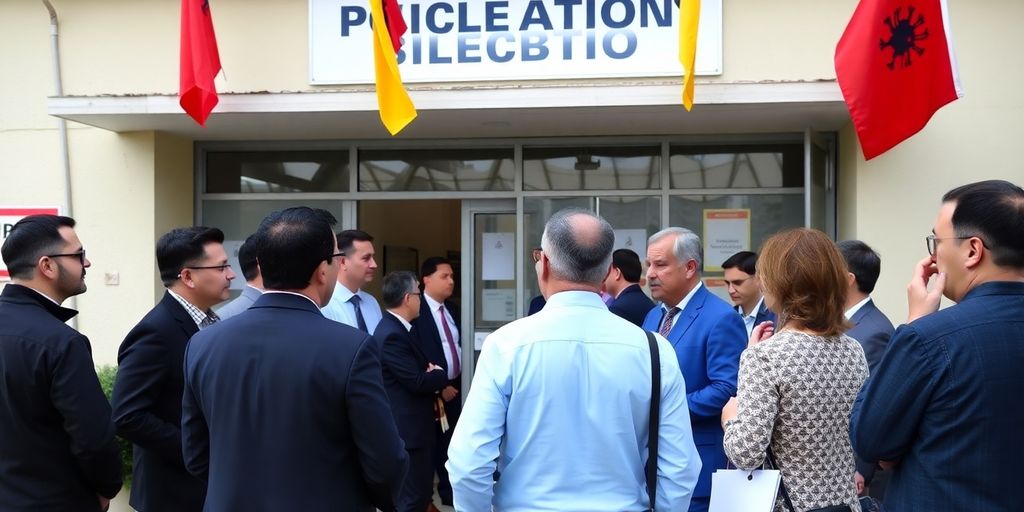Tirana, Albania is gearing up for its parliamentary elections on May 11, 2025, with over 300 international observers from the Organization for Security and Cooperation in Europe (OSCE) set to monitor the electoral process. This election marks a significant milestone as it allows Albanians living abroad to vote by mail for the first time, expanding the electorate significantly.
Key Takeaways
- Election Date: May 11, 2025
- Observers: 338 international officials from OSCE’s ODIHR
- Voter Expansion: 250,000 Albanians abroad can vote by mail
- Political Landscape: Dominated by the Socialist Party and the Democratic Party
- EU Aspirations: Albania aims for EU membership by 2030
Background of the Election
The OSCE’s Office for Democratic Institutions and Human Rights (ODIHR) has been monitoring elections in Albania since 1996. This year, the mission is led by Ambassador Lamberto Zannier, who will oversee the evaluation of the election’s fairness and adherence to democratic standards. The mission includes a core team of 12 experts and 26 long-term observers, with additional short-term observers arriving closer to the election date.
Voter Eligibility and Political Context
Approximately 3.6 million voters are eligible to participate in the elections, a number that includes the 250,000 Albanians living abroad. Voters will select 140 representatives from a pool of candidates representing 26 political parties and coalitions. The current political landscape is dominated by the left-wing Socialist Party, led by Prime Minister Edi Rama, who is seeking a fourth consecutive term since taking office in 2013.
The main opposition party, the center-right Democratic Party, led by former Prime Minister Sali Berisha, has accused the ruling party of corruption and electoral manipulation. Both Berisha and former President Ilir Meta are facing separate corruption allegations, which they claim are politically motivated.
Election Monitoring Focus Areas
The OSCE observers will monitor various aspects of the electoral process, including:
- Campaign Activities: Observing the conduct of political campaigns, including social media engagement.
- Election Administration: Evaluating the effectiveness and transparency of the election administration.
- Media Coverage: Assessing how media outlets report on the elections and the candidates.
- Dispute Resolution: Monitoring how electoral disputes are handled by authorities.
On election day, observers will be present at polling stations to oversee the voting process, counting of votes, and tabulation of results. An interim report will be released two weeks prior to the election, with preliminary findings shared the day after the election.
Challenges and Future Aspirations
Albania’s electoral history has been fraught with challenges, including allegations of vote-buying and manipulation of ballot counts. As the country seeks to align itself with European Union standards on democracy and the rule of law, the upcoming elections will be a critical test of its political integrity.
Prime Minister Rama has expressed hopes that Albania can achieve EU membership by 2030, making the integrity of these elections even more crucial for the country’s future.
As Albania prepares for this pivotal moment in its democratic journey, the presence of international observers underscores the importance of transparency and fairness in the electoral process, aiming to bolster public confidence in the democratic system.






